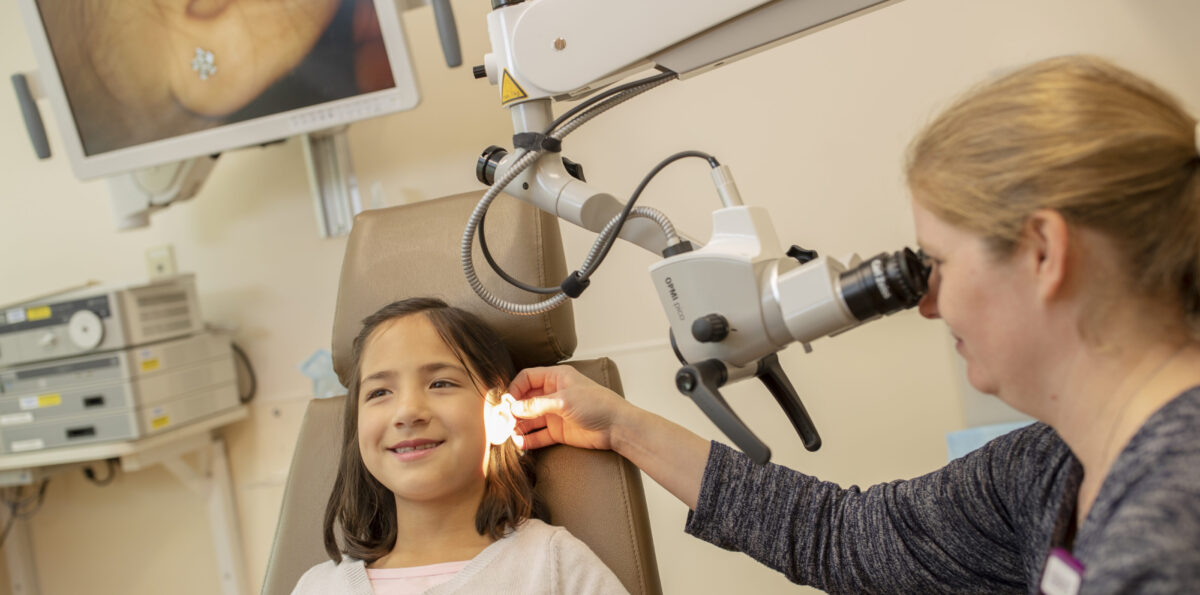When Is My Child’s Snoring a Problem?

Beyond the annoyance, parents are often surprised to learn that snoring can also be a sign of a more serious health condition called obstructive sleep apnea (OSA) in their child
If you live with someone who snores, you are most likely aware of how disruptive snoring can be. Loud snoring can ruin nights of sleep for anyone sharing a room or even affect the entire household.
But beyond the annoyance, parents are often surprised to learn that snoring can also be a sign of a more serious health condition called obstructive sleep apnea (OSA).
What to know about sleep apnea in children
Obstructive sleep apnea is a condition that affects both children and adults. During sleep, the soft tissues in the back of the throat collapse with each “in and out” breath. The collapsed tissues temporarily block the flow of oxygen through the airways and cause breathing to slow down or stop.
Like adults with sleep apnea, your child’s snoring may cause restless and inefficient sleep. But children also experience daytime symptoms, such as hyperactivity, behavioral problems, and even learning difficulties in the classroom. Left untreated, obstructive sleep apnea can lead to serious health conditions such as high blood pressure or long-term heart and lung problems.
Have you noticed these warning signs in your child?
The restricted flow of oxygen during sleep causes various symptoms in children than what adults may experience. Your child may have obstructive sleep apnea if you regularly observe these behaviors:
- Loud or irregular snoring
- Witnessed pauses in breathing
- Restless sleep or waking up frequently
- Nighttime bedwetting
- Sleep terrors
- Daytime hyperactivity or behavioral problems
- Trouble focusing in school or learning problems
How Is sleep apnea diagnosed?
As a pediatric ear, nose, and throat specialist or ENT, I evaluate children with obstructive sleep apnea symptoms. After a physical exam to rule out other problems, I may order a sleep study or polysomnogram test. This is an overnight test performed in a pediatric sleep lab to monitor your child’s breathing patterns, brain activity, oxygen levels, heart rate, and muscle activity. A sleep study might not be necessary for the diagnosis if patients have significant, clear-cut obstructive sleep apnea symptoms.
Treatment for your child’s obstructive sleep apnea
At Mary Bridge Children’s, our pediatric ENT specialty team offers a range of treatment options, depending on the severity of your child’s condition:
Medications – Patients with mild obstructive sleep apnea who have allergy-like symptoms often respond to drugs such as nasal steroid sprays or pills taken by mouth, such as Singulair.
Positive airway pressure – Continuous positive airway pressure is known as CPAP. It involves wearing a mask over the nose or mouth at night. The CPAP machine provides a steady stream of air pressure to prevent the collapse of the throat’s soft tissues during sleep. While CPAP is a popular treatment of choice in adult patients with sleep apnea, wearing a mask and using a noisy machine can be a more challenging option for children.
Surgery – Tonsillectomy (removal of the tonsils from the back of the throat) and adenoidectomy (removal of the tissues in the back of the nose) are standard surgical procedures used to treat sleep apnea in children. In fact, these surgeries are 80% effective in completely curing obstructive sleep apnea.
Not sure what your child needs? Our pediatric ENT clinic can help!
I reassure parents that a snoring child doesn’t always mean sleep apnea. However, if your child snores and you are worried about the quality of sleep, it may be time to talk to your pediatrician about a referral to our ENT clinic. Our team of pediatric experts brings years of clinical training and experience in treating children with common ear, nose, and throat problems and complex airway conditions, including obstructive sleep apnea.
Mary Bridge Children’s pediatric ear, nose, and throat specialists take care of patients across our region with convenient outpatient locations in Tacoma, Federal Way, and Gig Harbor. For more information or a referral, call 253-403-7777.
Learn more about the full range of pediatric ENT services offered.